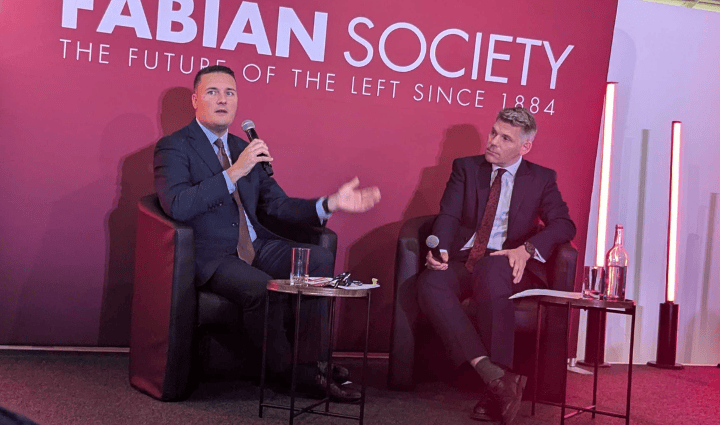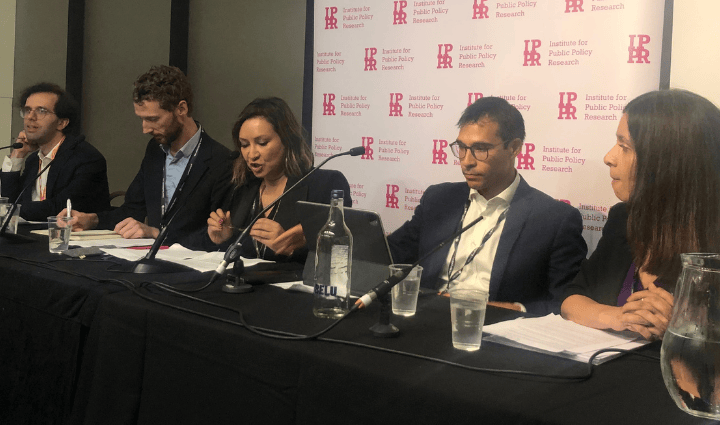Labour Party Conference 2024: What it might mean for workers' rights advocates
For the first time in 14 years, the Labour Party held its annual conference while in government. Three members of the Work Rights Centre joined the multitude of ministers, aides, union reps and business lobbyists on the Liverpool waterfront, determined to raise awareness of migrants and vulnerable workers’ issues. As Labour’s all-important 100th day in office approaches and the cogs of policy resume their frenzied spin, we reflect on what this conference might mean for those of us hoping to use policy influencing to widen protections for vulnerable workers.
The Employment Bill could be the biggest shake-up of employment law in a generation, but much is unknown
Labour campaigned with an ambitious New Deal for Working People, and the conference reaffirmed this pledge. The Prime Minister used his speech to promise “the biggest levelling-up of workers’ rights in a generation”. No fewer than seven fringe events focused on the New Deal, including two attended by The Minister for Employment Rights, Competition and Markets, Justin Madders, a former employment solicitor himself.
There is a lot to be encouraged by. The notes to the King’s Speech list 11 areas of policy reform we can expect to see in the Employment Rights Bill. This includes banning exploitative zero-hour contracts, ending fire and rehire practices, introducing day one rights and making flexible working the default from day one, as well as strengthening protections for new mothers by making it unlawful to dismiss a woman for six months after her return to work. The Bill would also establish a single enforcement body for employment rights, and expand trade union access to workplaces.
While these commitments look promising, Labour promised to introduce a new Employment Bill to give effect to the New Deal in their first 100 days in power. With this deadline mere weeks away, there are many unknowns yet to be resolved.

Wes Streeting, Secretary of State for the Department for Health and Social Care, in conversation with Andrew Harrop, General Secretary of the Fabian Society.
The unknown - but vitally important - details
There is a huge amount we don't know yet. A draft of the Bill has not been tabled yet, and the details will be critical.
Take, for example, the government's pledge to ban exploitative zero-hour contracts (previously a pledge to ban all zero-hour contracts). There is an obvious question about what constitutes exploitation, as well as questions around procedural details. Are workers themselves expected to demand a guaranteed hours contract, or will employers have to offer it? What is the remedy available to workers if hours are not guaranteed, and will employers be fined for failing to comply?
Deterrence is an important part of creating a culture of compliance. Just think of National Minimum Wage regulations. Paying workers below the NMW has been illegal since 1998, and the HMRC has long had powers to name, shame, as well as fine employers. And yet, thousands of cases of unlawful deductions from wages are brought every year, possibly because, as the Resolution Foundation has argued, the fines applicable are too small to constitute an actual deterrent. To put an end to exploitative zero-hours contracts, these details are key.
There are also many questions about the government's proposed Fair Work Agency, the single enforcement body that would unify the complex tapestry of labour rights agencies operating in the UK. In principle, this is a much-needed development. The UK enforcement system is, in the words of MP Liam Byrne at one fringe event, "a shambles". Responsibility for the enforcement of employment rights is divided between several agencies in ways that are confusing for workers and employers alike. Employment Tribunals and the National Referral Mechanism for victims of modern slavery are also separate avenues to this, and both are struggling with significant delays.
The success of the Fair Work Agency will be widely dependent on its powers, resources, and ability to support the tribunal system, to name just a few. Just as importantly, it depends on the extent to which it can command the respect of employers and earn the trust of workers - particularly migrant workers, who are often too reluctant to report bad employers for fear of losing their visas. Safe reporting is sorely needed, to ensure that workers are not put off reporting labour exploitation for fear of immigration enforcement.

Tony Vaughan MP (centre right) at IPPR and British Red Cross event Migration Policy Under Labour, alongside Marley Morris, Associate Director for Migration, Trade and Communities at IPPR (far left), Chris Murray MP (centre left), Baroness Ayesha Hazakari (centre), Mubeen Bhutta, Director of Policy, Research and Advocacy at the British Red Cross (far right).
Where next?
Without a doubt, these are early days. One hopes that the pressure of the 100 day milestone doesn't prevent the government from thinking through the details of the policy proposals communicated so far, and from taking a holistic approach to employment protections. There are many issues driving precarious work today that were neither mentioned in the King's Speech nor acknowledged by ministers at the conference. For instance, will workers get more than the very strict three months minus one day to take a case to the tribunal? Will there be any action against phoenixing, and directors who strategically close companies down to evade paying workers, only to reopen them under a different name? Perhaps most importantly, when will working people across the UK be given a single worker status, to bridge the current gap in protections between different employment statuses?
In the case of the Employment Bill, the future is quite literally unwritten. Employment rights advocates would be wise to ready their pens.
Labour’s vision for migration must go beyond control
Compared to the Employment Bill, Labour’s position on migrant workers’ rights struck a considerably more sombre note. Granted, it was encouraging to hear the Prime Minister denounce the racism of the July rioters, and the inhumane Rwanda policy. After years of seeing immigration and human rights lawyers dismissed as “lefty lawyers”, it was reassuring to see Lord Chancellor Shabana Mahmood, together with Attorney General Richard Hermer and Solicitor General Sarah Sackman reaffirm the value of law and human dignity in government, and the respect for legal advice. These, however, were the rare flickers of empathy and possibility in an approach to migration that was otherwise very similar to that of the previous government.
In his speech to the conference, the Prime Minister reaffirmed the desire to “take back control” - a phrase coined by Brexit supporters, as most readers will remember, now reimagined as a policy to “cut down net migration” and “reduce dependency on migrant labour”. Compared to the workers’ rights agenda, which included no fewer than seven fringe events, we found just three sessions focused on migration. One centred on asylum, while the others were effectively a reflection on what it might take to improve skills provision across the UK - migrants were only in the title, and the assumption was that this government would like fewer of them.
The main context when ministers acknowledged the problem of migrant worker exploitation was in response to our and other attendees’ pointed questions. We heard Wes Streeting, Secretary of State for the Department for Health and Social Care, wholeheartedly agree that the exploitation of workers under the Health and Care Workers visa was “appalling”. Similarly, new MP Tony Vaughan described the current system as “set up to lock in exploitation” and agreed that something must be done. It was also heartening to hear new MP Sarah Russell (formerly an employment solicitor) use her speech at the Future Social Care Coalition’s Care Rally to describe human trafficking in the care sector, but this short speech was a rare intervention that proactively raised the issue of migrant exploitation.
The challenge for migrant workers’ advocates will be to turn these separate expressions of support into real immigration system reform. The current system disempowers migrant workers by tying their visas to their employers. There is a solid evidence base that explains these risks and how to mitigate them, detailed in our latest report: The Systemic Drivers of Migrant Worker Exploitation. The government’s current approach is to strip exploitative employers of their sponsorship licence. Granted, this prevents those employers from further international recruitment. However, it does nothing to support workers who have taken huge debts to come to the UK, and who now need urgent help to find alternative employment and rebuild their lives.
One only hopes that the government has the strength to listen to the evidence. Migrant and British workers are not part of a zero-sum game but joint contributors to the UK’s prosperity, talent, and economic resilience. One in five workers in the UK is born abroad, and it is likely that by the next general election, one in five voters will be too.
